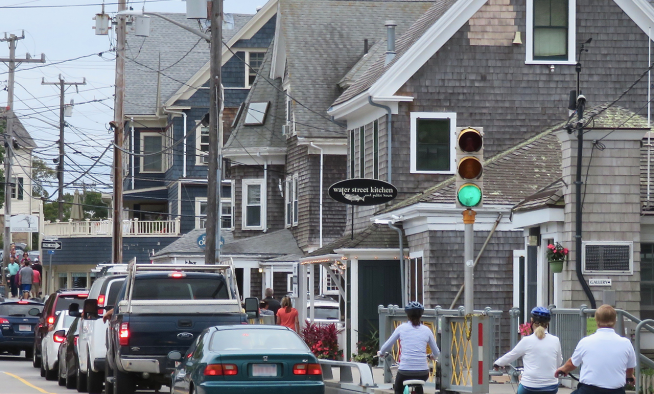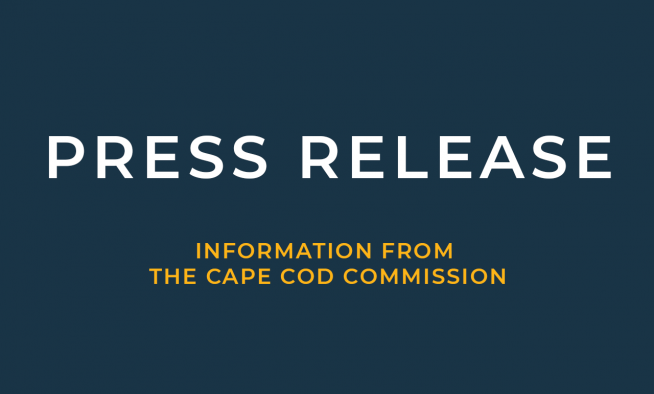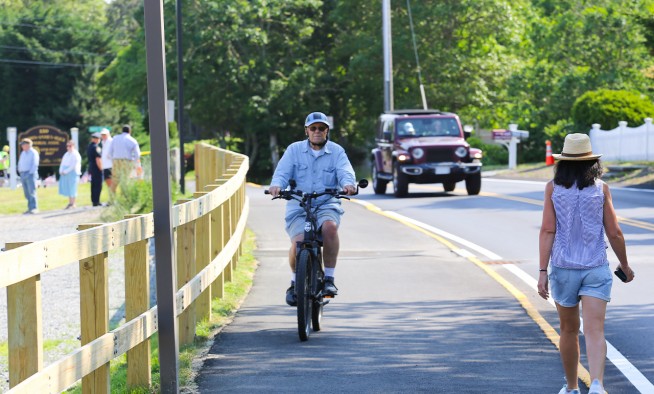Advancing a freshwater strategy for Cape Cod
Since its launch in 2022, the Cape Cod Commission’s Freshwater Initiative has made significant strides. This science-based, information-driven planning process is designed to promote actionable steps to protect and restore Cape Cod’s freshwater resources. Commission staff is set to finalize a draft strategy, outlining recommendations and implementation plans, later this calendar year. While efforts such as the Regional Pond Monitoring Program and remote sensing project will continue, data and findings inform articulation of the region’s freshwater challenges, as well as recommendations and priorities. The strategy will be complemented by resources to support implementation, such as a water quality data portal and pond buffer guidelines, both of which are currently in development.
Continued enhanced data collection
Conducted in partnership with the Association to Preserve Cape Cod, the Regional Pond Monitoring Program aims to standardize and expand data collection across the region. The second monitoring season began in April, and the team has conducted monthly monitoring at 50 representative ponds, with more than 500 site visits yielding over 74,000 data points. This data will soon be accessible to communities and stakeholders through a regional data portal, development of which has been informed by end users and benefits from a collaboration with the Woods Hole Oceanographic Institution (WHOI).
Meanwhile, work continues on integrating satellite data to better track changes in pond health. This effort began through a collaboration with the National Oceanic and Atmospheric Administration (NOAA) to develop remote sensing methods. With funding from the Environmental Protection Agency’s Southeast New England Program (SNEP), the team is now focusing on correlations between satellite data and indicators such as Chlorophyll A, which is indicative of impaired water quality and algal blooms. University of Minnesota’s Leif Olmanson, a partner on the project, shared insights from these collaborative efforts during the 2024 OneCape Summit.
The Regional Pond Monitoring Program is funded through 2025, and remote sensing through early 2026. Staff is exploring funding sources to continue both of these programs into the future.
Enhanced tools
An updated Pond Restoration Projects Viewer is now part of the Commission’s suite of online tools, which includes the Cape Cod Pond and Lake Atlas, the Pond Atlas Viewer, and detailed Pond Profiles. The updated Viewer showcases ongoing and completed projects aimed at managing, restoring, and protecting ponds throughout Cape Cod.
Data from the Viewer has informed the development of a Strategies Database and fact sheets which will be available as resources to support implementation of the freshwater strategy. These resources, when finalized, will highlight strategies employed both on Cape Cod and in other regions, providing valuable guidance for pond management across Cape Cod.
Pond water quality data portal
A pond water quality data portal is also under development. This interactive tool will allow users to explore a range of data, similar to the existing marine water quality portal. The portal will offer insights into land cover, land use, and various water quality parameters, providing a comprehensive view of individual ponds.
The Cape Cod Commission is collaborating with the Timmons Group to develop the portal’s functionality and user interface and with the WHOI on data analysis and algorithm development. Once complete, users will be able to access this tool on the Commission’s website and use it to enable a deeper understanding of Cape Cod’s freshwater systems.
Pond buffer guidance
Recognizing that vegetated buffers that surround ponds are critical, and also most effectively managed by homeowners, towns, or other abutters, the Commission is working to create a pond buffer guide that will help those who own property near ponds to better manage these critical resources.
Working with Sandwich-based consultant Jenick Studio and Crawford Land Management, the Commission is working to develop guidance that will include basic information on landscape installation and maintenance best practices, descriptions of vegetated buffers and their importance, planting plans, plant lists, and information on where to source native plants.
An end-user group comprised of pond association members, local conservation agents, consulting firms, and the Association to Preserve Cape Cod is helping to inform development of the pond buffer guidance.
The goal is to normalize native pond buffers, and to help homeowners and others to easily create and nurture such areas.
To learn more and explore components of the Freshwater Initiative, please visit www.capecodcommission.org/freshwater.
Related Posts




